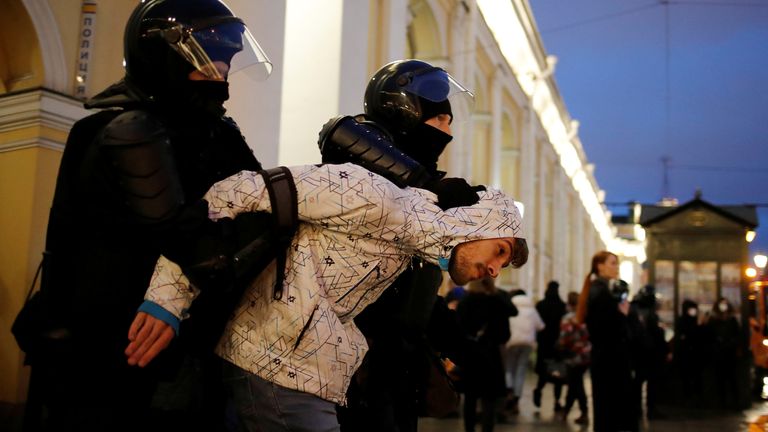100% Original Items
Official licensed products only
Satisfaction Guarantee
No replica, No copy items
Secure Payment
Powered by Paypal & Stripe
Same Day Dispatch
All orders placed before 2PM
Official licensed products only
No replica, No copy items
Powered by Paypal & Stripe
All orders placed before 2PM
Official licensed products only
No replica, No copy items
Powered by Paypal & Stripe
All orders placed before 2PM
Official licensed products only
No replica, No copy items
Powered by Paypal & Stripe
All orders placed before 2PM
Official licensed products only
No replica, No copy items
Powered by Paypal & Stripe
All orders placed before 2PM
A Russian court has banned groups linked to jailed Kremlin critic Alexei Navalny after declaring them “extremist”.
The ruling could increase tensions ahead of President Putin‘s meeting with US leader Joe Biden in Geneva next week.
Mr Navlany last year survived a poisoning attempt blamed on Russian intelligence, and in February was jailed for two and a half years for parole violations.
The 45-year-old has for many years been Mr Putin’s most vocal critic within Russia.
The latest case was brought by Moscow’s top prosecutor, who accused Mr Navalny and his allies of trying to start a revolution by destabilising Russia’s socio-political fabric.
Mr Navalny’s lawyers said they would appeal and criticised the prosecution’s evidence.
The ruling targets Mr Navalny’s Anti-Corruption Foundation and his regional campaign HQ, which has helped organise anti-Kremlin protests.

Authorities can now jail activists and freeze their bank accounts.
Ahead of the ruling, a message on Mr Navalny’s Instagram account read: “We’re not going anywhere.
“We’ll digest this, sort things out, change, and evolve.
“We’ll adapt. We won’t step back from our aims and ideas. This is our country and we do not have another one.”
President Putin last week approved a law banning members of “extremist” organisations from running for political office.

Along with the court decision, the hopes of Mr Navalny’s allies of getting into parliament in September’s elections are now over.
UK Foreign Secretary Dominic Raab was one of the first to criticise the ruling.
He said: “Today’s ruling that the anti-corruption foundation FBK is an extremist organisation is perverse.
“It is another Kafka-esque attack on those standing up against corruption and for open societies, and is a deliberate attempt effectively outlaw genuine political opposition in Russia.”
No account yet?
Create an Account